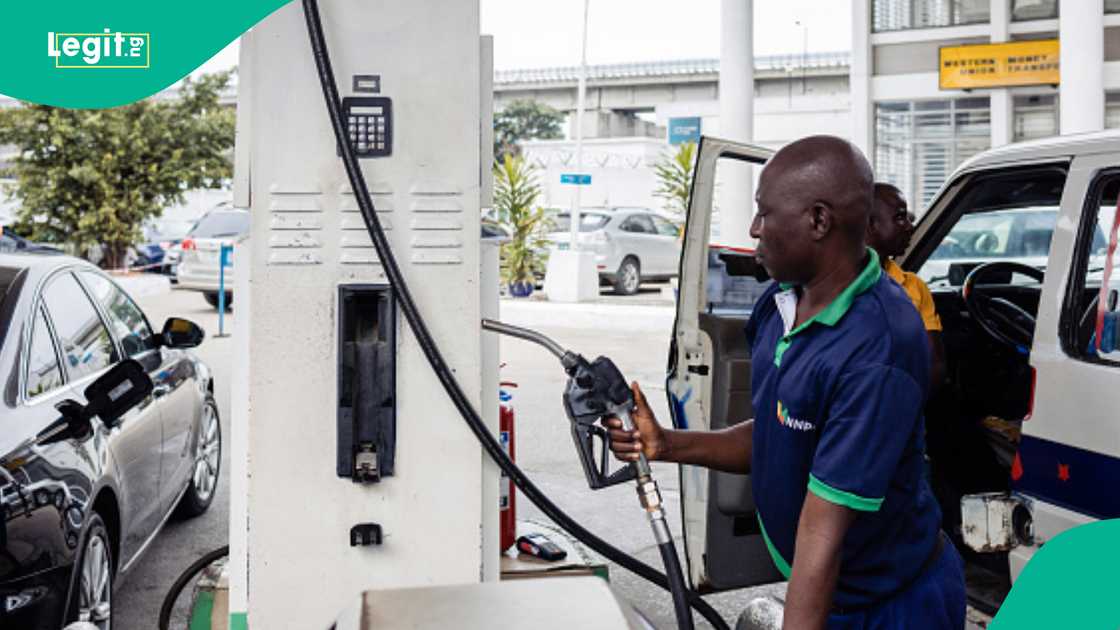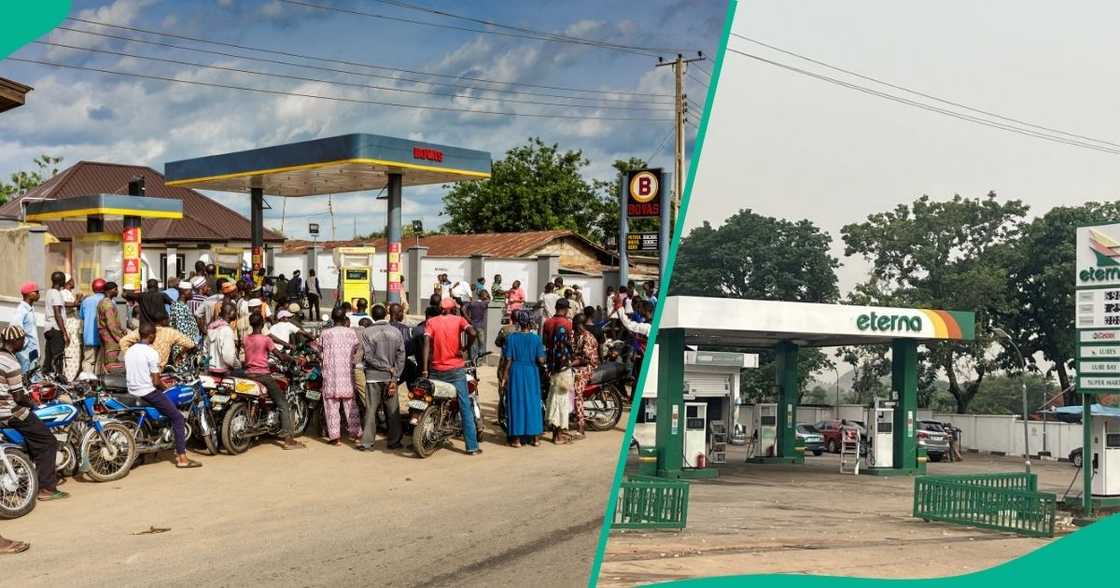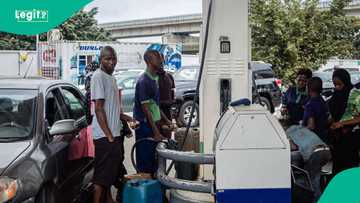Petrol Prices Crash at Depots as NNPC Hikes Price to N905 Per Litre
- Depot owners have dropped petrol prices as supplies improve in Lagos and major cities nationwide
- Latest data show that Lagos had some of the lowest depot prices as of October 7, 2025
- Experts say this shows a growing disconnect between depot and retail, and recent market developments
Pascal Oparada, a reporter for Legit.ng, has over ten years of experience covering technology, energy, stocks, investment, and the economy.
Depot prices for Premium Motor Spirit (PMS) dropped slightly across key petroleum hubs on Tuesday, even as the Nigerian National Petroleum Company Limited (NNPCL) increased its retail pump price to ₦905 per litre.
According to the Petroleumprice.ng Daily Oil and Gas Market Intelligence Report for October 7, 2025, Lagos recorded some of the lowest wholesale rates nationwide.

Source: Getty Images
The trend highlights a widening gap between depot and retail market trends, as marketers navigate supply disruptions and rising logistics costs.
Depot prices ease across major hubs
In Lagos, PMS traded for ₦836 per litre at AITEO, ₦837 at Dangote, and ₦838 at Emadeb, representing a modest week-on-week decline.
In the South-South region, TSL Depot in Port Harcourt sold at ₦854, while Matrix Depot in Calabar offered at ₦856 per litre.
Industry observers say the consistent pattern suggests that supply levels at key terminals are improving, following weeks of volatility and delayed loading operations.
Despite this improvement, retail consumers have yet to feel the relief.
Pump prices climb despite lower wholesale rates
While depots offered marginal discounts, NNPCL outlets in Abuja’s Wuse Zone 4 and Zone 6 raised their pump prices from ₦890 to ₦905 per litre, marking a ₦15 (1.7%) increase.
The move widens the gap between wholesale and retail prices, signalling ongoing challenges in fuel distribution and logistics.
President of the Independent Petroleum Marketers Association of Nigeria (IPMAN), Abubakar Maigandi, attributed the increase to temporary supply disruptions linked to the Petroleum and Natural Gas Senior Staff Association of Nigeria (PENGASSAN) strike at Dangote Refinery.

Read also
N3.6 trillion race: How Lagos, Rivers, and FCT left other states behind in Nigeria’s IGR ranking
“It is due to PENGASSAN’s strike disruption. However, members still sell at ₦885 and ₦895 per litre,” Maigandi told Daily Post.
The two-day strike, sparked by the alleged dismissal of refinery workers, briefly halted loading activities before government intervention restored operations.
Market outlook: Unsteady calm ahead
Analysts say the mismatch between falling depot rates and rising pump prices underscores the fragility of Nigeria’s downstream market.
Despite steady international benchmarks, Brent crude at $65.15 and Bonny Light at $80.92, local petrol prices remain exposed to refinery output constraints, transport bottlenecks, and forex fluctuations.
Experts predict short-term volatility as marketers adjust costs following the labour disruption and exchange rate swings.

Source: Getty Images
They also stress that better coordination between depots, refiners, and retailers will be vital to achieving price stability and a steady supply chain across Nigeria’s petroleum market.
Petrol imports drop to lowest in eight years
Legit.ng earlier reported that Nigeria’s petrol imports have plunged to their lowest level in eight years, as local refining power led by the Dangote Refinery begins to shake up the nation’s fuel market.
A new report by Argus showed that in September 2025, the country imported just 116,000 barrels per day (bpd) of Premium Motor Spirit (PMS), equivalent to 18.44 million litres daily, down sharply from 154,000 bpd (24.49 million litres) in August.
This was the lowest import volume since 2017, signalling the beginning of a dramatic shift from import dependence to domestic production — a transformation that has been years in the making.
Don't miss out! Join Legit.ng's Sports News channel on WhatsApp now!
Proofreading by Kola Muhammed, copy editor at Legit.ng.
Source: Legit.ng




